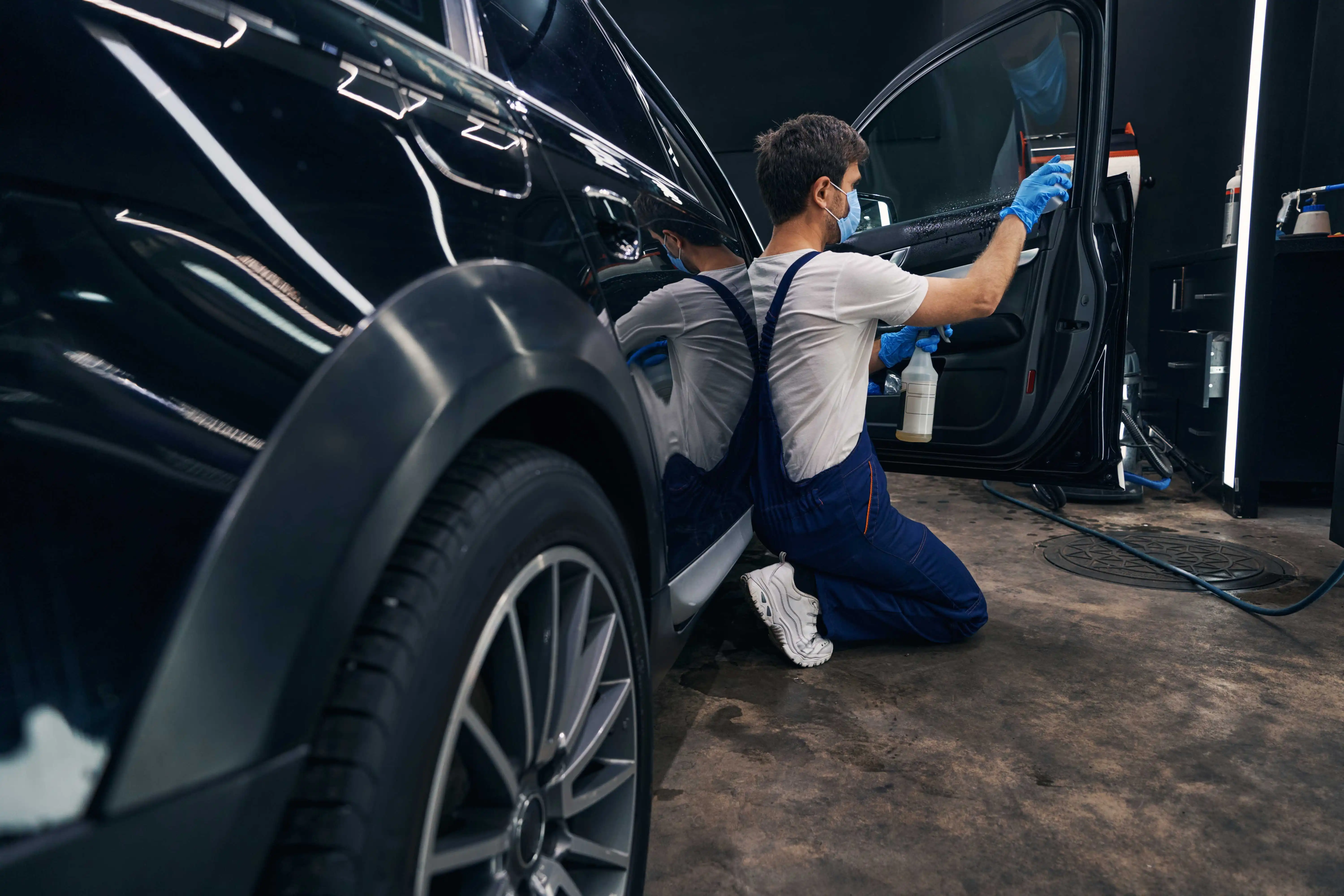Discover the Advantages of Window Tinting Clovis for Your Property
Discover the Advantages of Window Tinting Clovis for Your Property
Blog Article
Exploring the Various Sorts Of Home Window Tinting: A Comprehensive Introduction for Car Owners
In the realm of vehicle enhancements, window tinting stands out as a sensible option for vehicle owners intending to improve convenience and visual appeals while giving important defense (window tinting clovis). Comprehending the lawful policies regulating tinting in various jurisdictions includes another layer of complexity to the decision-making procedure.
Advantages of Window Tinting
Home window tinting provides a myriad of advantages that boost both the visual charm and capability of vehicles. One of the main benefits is the decrease of harmful ultraviolet (UV) rays, which can result in skin damage and boost the danger of skin cancer cells. By obstructing approximately 99% of UV radiation, tinted windows supply crucial protection for passengers during daily commutes or lengthy trips.
In addition, home window tinting significantly improves interior comfort by lowering glow and warmth accumulation. This not just produces a much more pleasurable driving experience yet additionally minimizes the reliance on air conditioning, leading to sustain cost savings. Improved personal privacy is another important benefit; tinted home windows cover the sight into the car, protecting personal items and making sure a complacency for passengers.
Furthermore, window tinting can prolong the life-span of a lorry's inside by minimizing sunlight damage, such as fading and splitting of furniture. Lastly, numerous jurisdictions identify the visual value of colored windows, which can elevate a lorry's general appearance and resale worth. In summary, the complex advantages of window tinting make it a beneficial investment for lorry owners looking for to improve security, convenience, and style.
Kinds Of Window Color Films
A range of window tint movies are offered on the marketplace, each developed to fulfill different requirements and preferences. The most usual types consist of colored, metalized, ceramic, and hybrid movies.
Colored movies are preferred for their aesthetic charm, as they give a darker color without reflecting light. They are normally cheaper but may discolor with time. Metalized movies, on the other hand, include metal fragments that mirror warmth and UV rays, enhancing resilience and performance. Nonetheless, they might hinder electronic signals.
Ceramic films stand for a premium option, supplying premium heat denial and UV protection without the disadvantages of reflectivity. These movies are non-conductive and do not influence digital gadgets, making them a popular choice among cars and truck owners looking for high efficiency. Lastly, crossbreed movies incorporate the advantages of dyed and metalized films, offering an equilibrium in between price and efficiency.
Choosing the right movie depends upon private priorities such as heat denial, visual appeals, and budget. Recognizing the attributes of each type can direct vehicle proprietors in making notified decisions that straighten with their particular needs and choices.

Lawful Regulations on Tints
Legal policies on window tinting vary substantially throughout various areas, mirroring neighborhood laws and safety standards targeted at guaranteeing chauffeur exposure and security. In the United States, for instance, each state has its own collection of guidelines regulating the allowable levels of tint darkness, usually determined by Visible Light Transmission (VLT) percentages. While some states allow darker tints for back home windows, others impose stricter restrictions on front side home windows and windscreens.
Globally, policies can differ much more dramatically (window tinting clovis). Nations might impose complete restrictions on tinting or limit it to lighter shades. In the European Union, the front windscreen needs to enable at least 75% of light to pass through, while the front side home windows need to permit at the very least 70%.
Compliance with these regulations is crucial, as failing to stick can result in penalties, mandatory elimination of non-compliant tints, or even lorry examinations. As a result, vehicle proprietors ought to acquaint themselves with their regional regulations prior to continue reading this applying window tinting. Consulting with experts and reviewing state or nationwide guidelines can assist ensure that any type of chosen tint follow legal criteria, ultimately boosting both safety and aesthetics.
Setup Refine and Factors To Consider
When thinking about the installment of window tinting for automobiles, numerous essential variables must be taken right into account to ensure a successful result. Picking the ideal type of tint is important, as numerous materials provide various levels of warm being rejected, UV protection, and aesthetic allure. Additionally, it is necessary to inspect neighborhood regulations relating to color darkness and reflectivity to continue to be certified with the legislation.
The installment process itself can be carried out DIY More Info or by an expert. While DIY sets are offered, expert setup is commonly advised for optimum outcomes. Specialists have the essential abilities, devices, and experience to make sure a perfect application, which lessens the danger of bubbles, creases, or peeling.
Before installment, the car's home windows must be thoroughly cleaned up and dried to stop contaminants from conflicting with the adhesive. By thinking about these variables, automobile owners can improve their driving experience while ensuring the durability and effectiveness of their window color.
Maintenance and Treatment Tips
Proper maintenance and treatment are vital for maintaining the appearance and performance of home window tinting after installation. To make sure longevity, automobile proprietors should wait a minimum of 48 hours prior to rolling down their home windows, allowing the sticky to treat correctly. Routine cleaning is essential; nevertheless, it is necessary to use gentle, ammonia-free remedies and soft microfiber towels to prevent scraping the color.
When washing your automobile, stay clear of high-pressure water sprays directly on the tinted windows, as this can deteriorate the glue in time. Rather, make use of a damp cloth to wipe the surface carefully. In addition, avoid using abrasive materials, such as rough sponges or brushes, which can damage the tint.
Check your home window color occasionally for indicators of gurgling, peeling off, or staining. If any issues are discovered, get in touch with a specialist to determine whether repair work or substitutes are needed. Moreover, auto parking in shaded locations or utilizing sunshades can even more safeguard your tint from long term sunlight exposure, which can result in fading.
Conclusion
In recap, understanding the different kinds of window tinting is vital for vehicle proprietors pop over to this site intending to improve convenience, aesthetic appeals, and defense. Proper setup and upkeep even more make sure optimal performance and durability of the color.
In summary, the diverse advantages of window tinting make it a useful financial investment for vehicle owners looking for to boost style, security, and convenience.
Lawful laws on window tinting vary dramatically throughout different regions, reflecting local legislations and security requirements intended at making certain driver visibility and safety. While some states allow darker colors for rear windows, others impose stricter limitations on front side windows and windshields.

Report this page